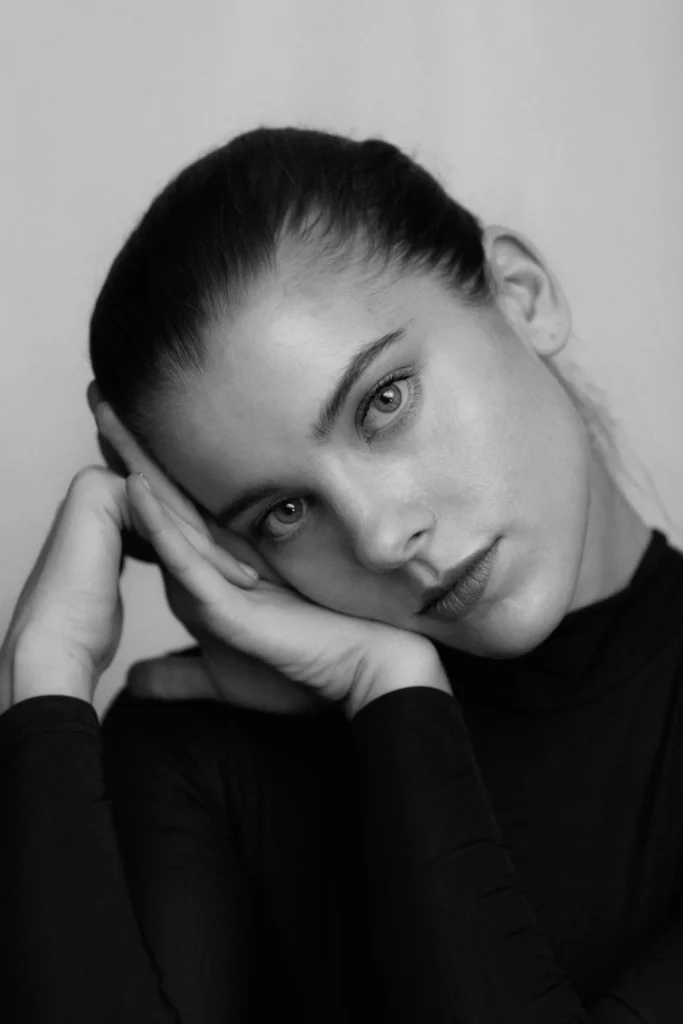by Suvi Honkanen
”Lose a kilo.”
Those were the words that started it all, a 15 year long battle with an eating disorder that took several different forms throughout the years.
I was a happy, 14 -year old girl, training to become a professional ballet dancer. I knew dancers were expected to be skinny, but the thought of my body not being acceptable had yet to cross my mind. When my teacher told me to lose weight, the first feeling was shame. I felt so mortifyed. Later that night, I ate a bowl of pasta, 16 cookies, and a chocolate bar. I felt better for a bit, until I felt disgusting. That was the first time I connected eating with feelings.
The next morning, I stood in front of my mirror and looked at my body with a new, unfamiliar feeling. I didn’t like it. I placed my heels together and noticed that there was no gap between my thighs. I squeezed my stomach in, and I wasn’t able to wrap my hands around my waist. My ballet teacher had told me a ballet dancer should be able to do that. I started asking all my friends and family about their eating habits to get an understanding of my own. Did I eat a lot, or less than most? I surfed the web for trips and tricks to curb hunger: gum, teeth-brushing, going somewhere where you have no access to food.
I would lose a kilo or two easily, but it never lasted. I would always “give-in” and have pizza with my family on Friday nights or eat popcorn with my friends at the movies. For the next few years, all I heard from my ballet teachers was that I needed to lose a little weight to look better. I was never able to make my weight-loss sustainable. Instead, food became this weird forbidden apple that I both punished and rewarded myself with. Every victory was celebrated with food, every disappointment was treated with food. There was no way to have fun without food, to grieve without food, to do anything without food being the center of it.
When I managed to lose a significant amount of weight at age 16, everything seemed to fall into place. I got more attention and positive feedback from my ballet teachers, I felt accepted, and I was happy. In fact, losing weight felt like I was peeling myself away and discovering a new person beneath it all, someone who I hadn’t met yet despite the fact that she had lived in my body for all these years. That new person wasn’t a little too chubby or soft for her ballet teachers, she wasn’t always a little insecure, constantly comparing herself with the other girls in ballet class. Her clothes looked better on her, everything started drooping a little, nothing uncontained. She needed to buy a belt, and she felt proud of it. There was a gap between her legs and when she woke up in the morning and pulled her stomach in, it felt as though she could feel her own spine through her stomach.
My eating habits were far from sustainable, and it wasn’t long until I became completely isolated from my friends and family. I was obsessed with food and being thin was my only goal in life. It took all of me, and there was no room for another love or another passion. I was lonely, sad, tired, and confused. Narcissistic thoughts that revolved around me, myself, and I took over everything. The main factor in every single decision was food.
From there, I developed unhealthy binging and purging habits which introduced shame into my life on a whole new level. The glorification of an unrealistically thin body made binge eating and bulimia even more of an “embarrassing” problem to have than anorexia. No one was talking about it, and it feltas though everyone had their eating under control except me. I used to wonder how people could eat two pieces of dark chocolate and feel satisfied, and maybe once a week they have a burger and ice cream. For me, two pieces of chocolate could trigger a three-day binge and weeks of self-loathing. All I could think about was: what is wrong with me?
My weight fluctuated and I felt my body change. I felt like I wasn’t in control anymore. I had so much support around me, but it didn’t fix the self-hatred. It’s so easy to tell a person they are loved regardless of what they look like, or that their self-worth is not measured by a scale. But it’s not easy to believe that when dealing with an eating disorder. I certainly know how strong the need to live in another kind of body can be. I also know how much easier it is to endure temptation than it is to endure self-loathing. I know what it feels like to look in the mirror and wish to be someone else.
I always waited for some sort of revelation that would change everything. Maybe I would meet someone who could show me a new life, maybe I would finally find the kind of diet that felt sustainable, or perhaps I would find the answer fromspirituality? But such a revelation never came.
What began my recovery in 2017 was the slow realization that I was wasting my life and ruining my relationships because of my obsession over my body. I finally faced the fact that no one was coming to save me; it had to be me. I need to want recovery more than I want to be thin. I needed to make a decision:
Do I want to be thin, or do I want to be happy?
For someone who had told herself that being thin meant being happy, it was quite the change to make. I realized all my past attempts at recovery had involved the underlying goal of being thin, not healthy or happy. This time around, I did my best to shift my focus from thinness to other things.
I felt immense bitterness, anger, and humiliation during the next few years. I often thought back to that first comment that was made about my body and how different everything would be if I had been allowed to go through bodily changes with peace. However, through talking, reading, journaling, and therapy, I was able to face myself with empathy. This was the key to recovery.
From my personal experience, recovery from any kind of body image issue is not linear, easy, nor fast. A year in, I was still binging at times. Still not happy with my body, still having thoughts about dieting. I missed my old body and that weird, euphoric feeling that going to bed hungry gave me. Two years in, I kind of liked how I looked, at least on most days. Three years in, I realized I had gone four months without binging.
I think a person can fall in love with herself for the wrong reasons just like a person can fall in love with another for the wrong reasons. End up in a toxic relationship, end up unhappy. I think you can start loving yourself for the things that don’t really matter, the superficial things, beauty and success, and you can forget to love what’s inside.
Recovery begins with the desire to want more from life. Life is so much more than having an ideal body. Ideals are subjective, anyway. The best moments in life are spontaneous, reckless, fearless, not planned, weighed and measured.
It starts with no shame.
With love,
Suvi




